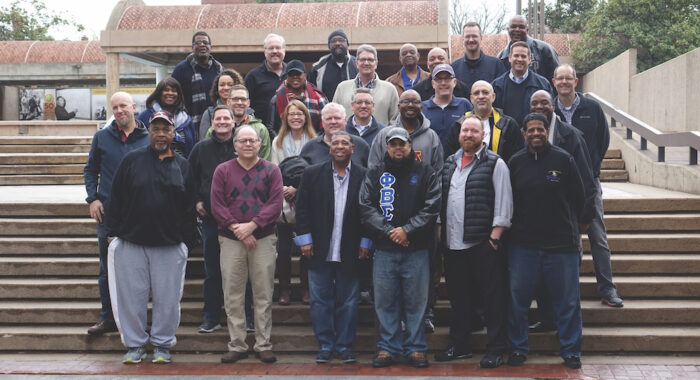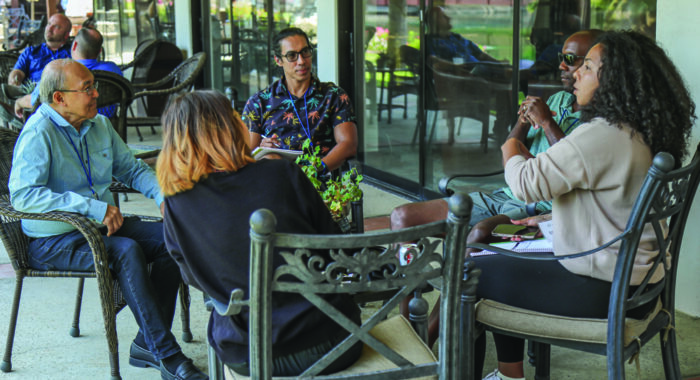No one goes to a church potluck expecting betrayal. However low our expectations of the food may be (though I have had some amazing meals), we have high expectations about the fellowship. Whether a newcomer hoping to make friends or longtime member waiting to update others on an answered prayer, we come to those meals not so much to fill our stomachs but to satisfy our souls.
Yet, betrayal at a fellowship meal is exactly what Jesus experienced. At the final Passover meal that Jesus observed with his disciples, “While they were reclining at the table eating, he said, ‘Truly I tell you, one of you will betray me — one who is eating with me.’ They were saddened, and one by one they said to him, ‘Surely you don’t mean me?’” (Mark 14:18–19).
That was a conversation stopper.
The shared meal was a symbol of peace, where even enemies laid aside their weapons and came without malice. Ancient people ratified covenants of love and loyalty over meals. The 70 elders of Israel shared a meal in God’s presence on Mt. Sinai to confirm the redemptive relationship between God and his people (Exodus 24:9–11). Modern people have that same impulse. Life changing promises at weddings are celebrated with receptions; international political negotiations are coupled with elaborate state dinners.
So, Jesus experienced “church hurt” at its most appalling.
Our experience of hurt can go in many directions — by leaders, against leaders, between congregants past and present, or even the church and its surrounding community. The variations are as expansive as the human capacity for sin. And it seems pervasive.
According to recent Gallup polls, only 32 percent of U.S. adults rate the honesty and ethical standards of clergy as high or very high. The average confidence in major U.S. institutions generally is likewise anemic. These are historic low. We the people all appear to be swimming in the murky waters of disillusionment and distrust.
Amid church hurt we need to discover and offer healing. This is arduous labor but does not need to be lonely labor. Our Savior paid for our sins and entered into the sorrow of those sins. Jesus’ offer of salvation is not a mere transaction of forgiveness, a proclamation of grace from afar. He navigated between joy and sorrow, hope and despair, promise and disappointment. What a friend we have in Jesus!
Walter Kim became the president of the National Association of Evangelicals in January 2020. He previously served as a pastor at Boston’s historic Park Street Church and at churches in Vancouver, Canada and Charlottesville, Virginia, as well as a campus chaplain at Yale University. He preaches, writes and engages in collaborative leadership to connect the Bible to the intellectual and cultural issues of the day. He regularly teaches in conferences and classrooms; addresses faith concerns with elected officials and public institutions; and provides theological and cultural commentary to leading news outlets. He serves on the boards of Christianity Today and World Relief and consults with a wide range of organizations. Kim received his Ph.D. from Harvard University in Near Eastern Languages and Civilizations, his M.Div. from Regent College in Vancouver, and his B.A. from Northwestern University.




 View All Articles
View All Articles 





























